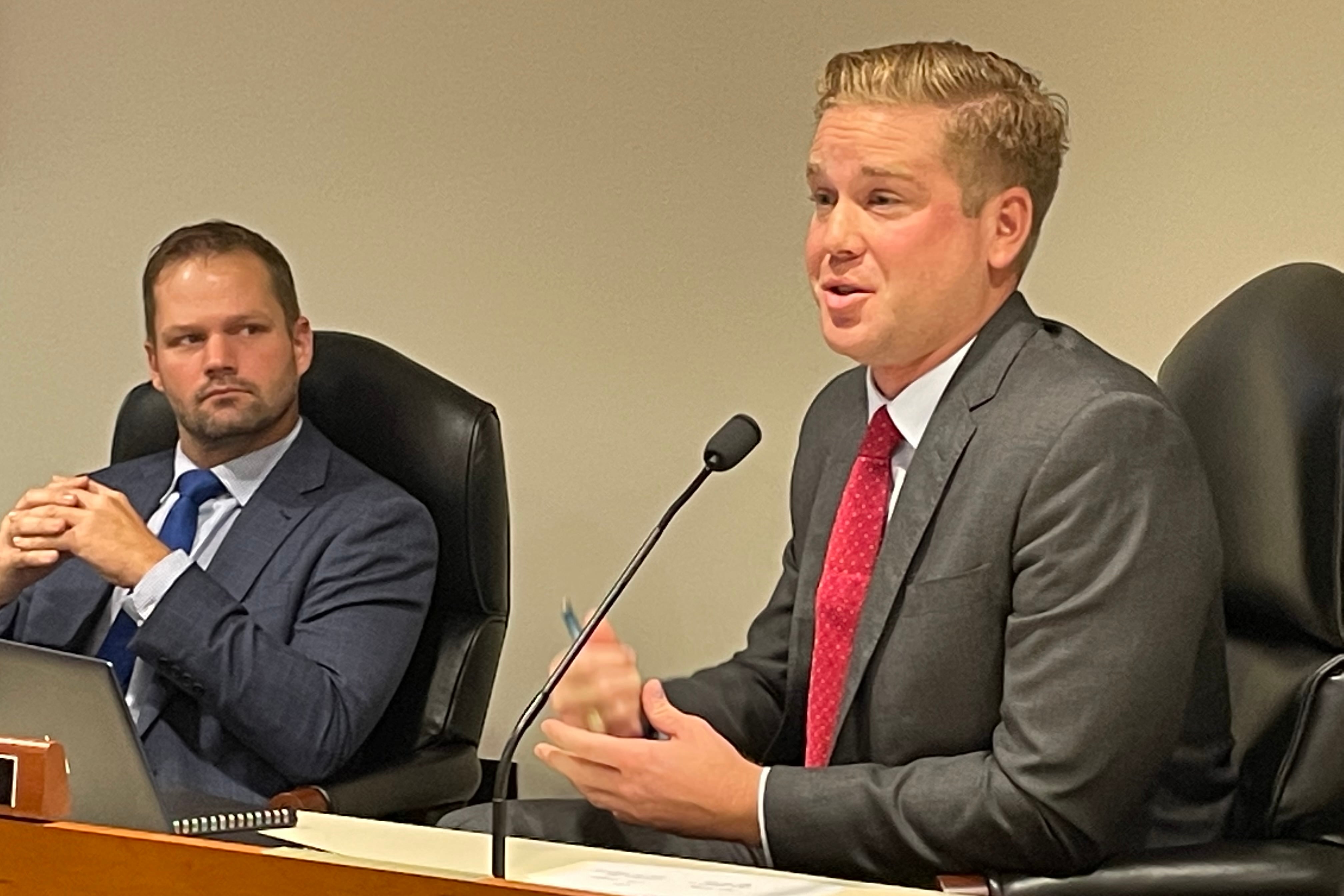New legislation proposed by Republicans would more sharply restrict how race is taught in Michigan classrooms, including banning schools from teaching that racism and sexism are inherent or that individuals bear guilt for wrongs committed by their race.
The Michigan House Education Committee took up the legislation Tuesday. Chairwoman Pamela Hornberger, a Macomb County Republican, supports the measure but hasn’t scheduled a vote.
The legislation is fueling an already contentious debate over critical race theory that has been cropping up in state legislatures and local school board meetings across the country. The debate is fueled by conservative reactions to “The 1619 Project,” a New York Times Magazine initiative that pinned the growth of the nation on the consequences of slavery and the contributions of Black Americans. That widened a political divide over whether racism is embedded in American society.
Debate spread across the country including in Michigan’s Traverse City, Alpena, and Lansing schools.
Sponsored by Republican state Rep. Andrew Beeler of Port Huron, the Michigan House bill prevents public schools from including “anything that could be understood as race or gender stereotyping” in their instruction. No penalties are prescribed in the bill.
The legislation has 10 Republican co-sponsors but no support from Democrats. If it passes the House and Senate it is unlikely that Democratic Gov. Gretchen Whitmer would sign it into law.
Beeler said he was careful not to use the politically charged term “critical race theory” in his bill but that didn’t stop lawmakers and activists on both sides from drawing connections to the academic framework that examines the systemic nature of racism and the lingering effects of slavery.
“We’re being told that based on the color of your skin you’re either a victim or an oppressor, and I want to nip that in the bud because it’s such destructive thinking to a person to teach them that you’re a victim because of the color of your skin,” said Tim Keller, a Port Huron North High School history teacher Beeler invited to testify.
“Racism is a fact in this country, but if you harp on it, you make it worse [by getting] people to focus on what divides them.”
State Superintendent Michael Rice has said that critical race theory is not part of the Michigan school curriculum, but Beeler and others said they want to proactively keep “poisonous ideas” out of classrooms.
Democrats were wary.
“This legislation could potentially stifle fruitful conversations around race and racism,” said House Democratic Whip Darrin Camilleri, a former Detroit social studies teacher.
“For generations, students in Michigan have not had an opportunity to discuss the real history,” he said. “The fact that many educators are choosing now to engage in very tough and difficult conversations around race and racism is something that should be thought about differently, and even encouraged.”
Beeler said there’s nothing in his bill to prevent frank conversations about lived experience with racism.
High school principals weren’t so sure.
“When the state potentially steps in and imposes sweeping, generalized, broad restrictions on what schools can talk about and teach it can be detrimental,” said Bob Kefgen, spokesman for the Michigan Association of Secondary School Principals.
“In implementation, it can really have a chilling effect on a school’s ability to manage their own curriculum and manage their own lessons because they’re concerned of running afoul of a law,” he said in a telephone interview after the meeting.
The Detroit-based education advocacy group 482Forward called the legislation dangerous and likened it to book burning.
“We need to teach truth because in order to be in society we have to understand where our people have come from, right? And some of our people have done really awful things,” Molly Sweeney, 482Forward’s organizing director, told the committee. “We cannot be afraid of history. … We cannot be afraid to talk about it. We can’t be afraid to face it.”
Beeler’s bill specifically prohibits teaching the following:
- That all members of a racial, ethnic, or gender group have the same qualities and beliefs.
- That actions and beliefs are caused by racial or gender identity.
- That people are born racist or sexist “by accident of their race or gender.”
- That people bear collective guilt for historical wrongs committed by their race or gender.
- That race and gender are better determiners of outcomes than character, work ethic, or skills.
- That norms and practices of a racial, ethnic, or gender group are flawed.
- That racism or sexism are inherent in people from particular racial, ethnic, or gender groups.
- That a racial, ethnic, or gender group is in need of “deconstruction, elimination, or criticism.”
- That actions of an individual serve as an indictment against the person’s race or gender.
“I truly don’t know which element of these nine items here would prevent someone from having a frank discussion about someone’s experience in their own life. That’s certainly not the intention of legislation whatsoever,” Beeler said.
A separate bill more directly targeting critical race theory was introduced in the Senate in May and awaits action in the education committee. Under that bill, schools would lose 5% of their funding if educators teach critical race theory, “anti-American” ideas about race, or material from “The 1619 Project.”
Correction: June 7, 2022: A previous version of this story incorrectly said the bill prohibited teaching that a racial, ethnic, or gender group is in need of destruction.








